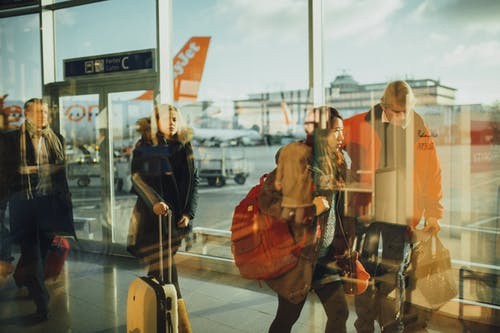Homeland Security Proposes Face Scanning for Travelers and U.S. Citizens

In a previous published article on Latin Post titled "Who Exactly Are the Undocumented Immigrants in America?" it was found out that there are more undocumented immigrants who travel by air and sea rather than those crossing the country's southern-most border. Most of the time, these undocumented immigrants have visas to work or study, but once it expires they chose to stay instead of going back to their homeland.
That is the reason why U.S. Homeland Security said that Trump's administration may be successful in reducing the number of undocumented immigrants who cross the borders by hiring more border patrol agents and upgrading the wall that divides U.S. and Mexico. However, it fails to reduce the number of undocumented immigrants who chose to stay in the country after their visa expires and are able to due to a lack of technology. The number shows that in 2018 around 670,000 travelers arrived in the country, but only a few left before the fiscal year ended.
In an article published in Reuters, according to the administration's regulatory agenda that it proposes to have face scans of all the travelers and U.S. citizens who are entering or leaving the country next year. This is part of the broader system that would monitor the number of travelers who are entering, and leaving, the country at the same time. The regulation is said to start by early July of next year.
However, despite the aim of the U.S. Homeland Security System and Trump's administration to reduce the increasing number of undocumented immigrants who have expired visas, still, the proposed regulation received criticism from the opposition who are affiliated with some privacy advocates. One of them is the senior policy analyst with the American Civil Liberties Union Jay Stanley, who strongly opposed the regulation.
Stanley said on Monday that, "travelers, including U.S. citizens, should not have to submit to invasive biometric scans simply as a condition of exercising their constitutional right to travel."
Meanwhile, Trump's administration believes that the regulation does not violate the rights of a person to travel, but the proposed face scans only aim to monitor the number of travelers and U.S. citizens who are entering and leaving the country. Most of all, it will help to combat the fraudulent use of U.S. travel documents and will aid to identify criminals and terrorists who are attempting to make America their asylum.
Moreover, since this is a major regulation, the public has 30 to 60 days to give their comments on the said proposition. The federal agency then needs to respond, give comments, and review the comments of the public as part of the proposed U.S. major regulation. Also, Trump's administration said that they will release a separate fast-track regulation before this year ends that would allow entry-exit project and move beyond a pilot status.
Before the implementation of the proposed regulation, the U.S. Customs and Border protections have already conducted pilot programs such as getting photographs and fingerprints from foreign travelers. However, technical and operational problems were found during the 2018 internal audit at nine U.S. airports. It raised questions if DHS would meet its self-imposed deadline to confirm all foreign departures at the top 20 airports in the country before the fiscal year 2021 ends.
In separate research from the Pew Research Center, it was found that 45 percent of all immigrants in 2006 traveled inside the country with a valid visa, but did not return home after their visa expired.
Subscribe to Latin Post!
Sign up for our free newsletter for the Latest coverage!
© 2025 Latin Post. All rights reserved. Do not reproduce without permission.














